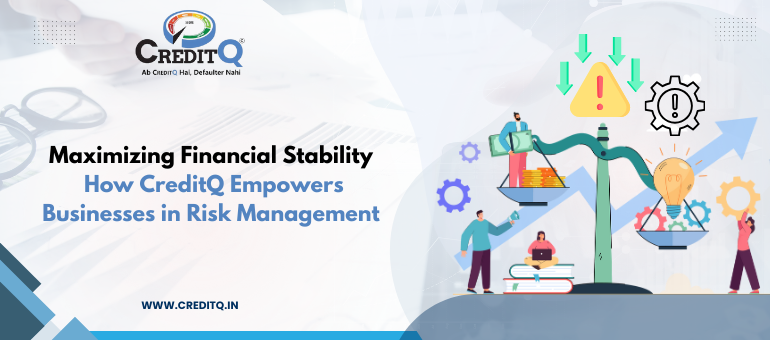Defaulting on business debts is a serious issue that can have significant implications for companies of all sizes. A business debt defaulter is an individual or entity who has failed to make regular payments towards invoice repayments when due. Defaulting on debt can result in immediate and long-term consequences, such as additional interest charges, legal action from creditors, and negatively affected credit ratings. Companies should be aware of the potential risks and damages associated with defaulting on dues in order to protect their businesses from financial losses.
Identifying Business Debt Defaulters
Warning Signs of Default:
When it comes to identifying business debt defaulters, there are a few warning signs that businesses should be aware of. These can include an increase in late payments or missed payments on due invoices, difficulty in purchasing from creditors, and an overall decrease in cash flow. Additionally, if a business is unable to negotiate more favorable terms with its creditors or fails to make payments within the agreed-upon time frame then this may also indicate potential defaulting.
Collection Services:
Businesses who suspect they may have a problem with debt default should consider using collection services such as CreditQ. This service works by analyzing each customer’s business information in order to determine the best course of action for repayment. CreditQ provides company credit score with detailed reports outlining all available options including restructuring existing agreements or negotiating payment plans with creditors. In addition, CreditQ can help businesses identify customers who are at risk for future defaults before they become delinquent on their payments so that corrective measures can be taken immediately.
Finally, any company considering making changes to its debt structure should consult legal professionals first before taking any action as laws related to collection activities vary by state and country and could lead to serious consequences if not followed correctly. It is important for companies facing financial difficulties due to defaulted loans or other debts to seek professional advice from qualified advisors in order to obtain the most beneficial outcome possible from the situation at hand
Minimizing Risk of Default
Managing Cash Flows:
Minimizing the risk of default on business debts is critical for companies of all sizes. One way to do this is by solutions for cash flow problems, which entails monitoring and forecasting the company’s income and expenses in order to ensure that sufficient funds are available at any given time. Additionally, businesses should consider limiting their financial leverage by avoiding taking on unnecessary debt or loans, as well as paying off existing obligations promptly when possible. Securing funds from alternative sources such as government grants or private investments can also help companies lower their risk of defaulting on debt payments while still pursuing growth opportunities.
Limiting Financial Leverage:
Another effective measure for reducing the risk of default is ensuring that a healthy credit rating is maintained with creditors. Companies should be diligent about making timely payments on all outstanding accounts, keeping accurate records of transactions, providing regular financial statements upon request and responding quickly to inquiries from creditors. Maintaining good relations with creditors can go a long way towards protecting against defaults since it demonstrates trustworthiness and reliability when it comes to repayment terms being met in full and on time.
Securing Funds from Alternative Sources:
It’s also important for businesses to understand how different types of financing work before entering into any agreements regarding loan repayments or borrowing money from lenders or other institutions. Different methods such as secured debt versus unsecured debt will have distinct implications concerning interest rates, and fees associated with early repayment or late payment penalties among other things so researching these thoroughly prior to signing any contracts will ultimately help reduce the chances of defaulting down the road.
No-Default Solutions
Debt Restructuring:
Debt restructuring is a great option for companies who find themselves in difficult financial situations due to defaulting on business debts. By restructuring the debt, companies can negotiate new terms with their creditors that may include lower interest rates, different repayment schedules and even reduced principal amounts. Additionally, restructuring allows businesses to spread out payments over longer periods of time which can help them avoid having to make large lump sum payments all at once.
Business Debt Solutions:
Business debt solutions are also available for those struggling with defaulting on business debts. These services typically involve working out an arrangement between the company and creditors whereby they agree upon specific payment options or plans based on the company’s current situation and ability to pay back what they owe within a reasonable timeframe. Business debt solutions often come in many forms such as consolidation loans or settlement plans depending on each individual case so it is important that companies seek professional advice from qualified advisors when considering these types of arrangements.
No Defaulter:
No defaulters programs are another way for businesses facing financial hardship due to defaults on their debts to get back into good standing with their creditors without having any negative impacts reflected on their credit reports. Ultimately, no-default solutions offer businesses a chance at rebuilding relationships with creditor while still meeting repayment obligations in full and avoiding further damage being done to their business credit score in the process.
Conclusion
In conclusion, it is evident that managing business debt default risks is essential for companies of all sizes. To effectively reduce the risk of defaulting on debts, businesses should consider utilizing credit risk management services such as CreditQ to analyze customers’ credit information and identify those at risk for future defaults. Finally, restructuring debt agreements or seeking alternative financing solutions can help companies lower their chances of defaulting on business debts while still pursuing growth opportunities. By following these strategies, businesses can protect themselves from potential losses due to defaults in the future.









